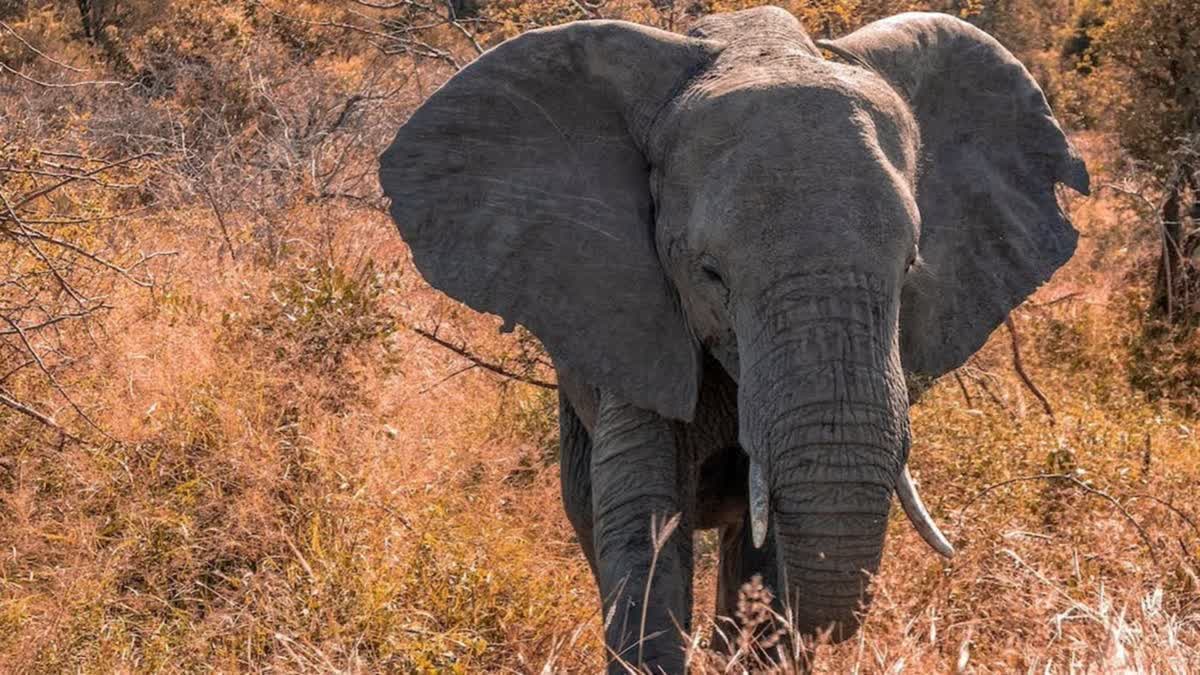Bengaluru: The Karnataka Forest Department is all set to tag elephants in the Chikkamagaluru and Hassan districts with indigenously manufactured GSM-based radio collars.
Forest Minister Eshwar Khandre on Wednesday handed over these radio collars named as KP Tracker to forest department officials. "These radio collars will be tagged to female elephants that usually lead the herds in Chikkamagaluru and Hassan districts," Khandre said.
The Forest Department started tagging wild elephants with radio collars in November 2023 to track their movement and alert people well in advance. The move was aimed at curbing increasing incidents of human-animal conflict. Karnataka has about 6,400 elephants, the highest in the country.
Manufactured by Bengaluru-based Infiction Labs Private Limited (ILPL), these new radio collars are cost effective, light weight and made of using eco-friendly raw materials, Khandre said.
Till now, the department used to procure radio collars from South Africa's African Wildlife Tracking and Germany's Vectronic companies. The cost of these imported collars was around 6.5 lakh each while the indigenous collars cost just Rs 1.8 lakh each.
The new collars weigh just 7kg as against those imported ones which weighed 16-17 kg. Moreover, the department had to wait for months after placing orders for imported collars. Besides, their repair and maintenance was also an issue.
There was also an apprehension of leakage of sensitive information about the state's forests and wildlife. "With the indigenous radio collars, all these issues will be solved," Khandre added.
He said that the ILPL is also working on manufacturing radio collars to be tagged to lions and leopards.
Gurudeep, Technical Expert, ILPL, explained the functioning of the radio collars.
Features of the Indigenous Elephant Collar
Cost-Effective: The new collar costs ₹1.80 lakh per unit, significantly lower than imported versions, which cost ₹6.50 lakh each.
Lightweight: It weighs just 7 kg, compared to 16–17 kg for imported collars, making it more comfortable for elephants.
Long Battery Life: The collar is designed to last longer and can be easily maintained.
Eco-Friendly: Made from locally sourced materials, it is environmentally safe and does not harm wildlife.
Easy Maintenance: Unlike imported collars, this version allows for repairs, including battery and circuit replacements.
According to Kumar Pushkar, Additional Principal Chief Conservator of Forests (Wildlife), Karnataka, the GSM-enabled collar will send real-time data to a dashboard, allowing district control centres to alert local communities about elephant movements. It will also help in conducting scientific studies on elephant migration patterns.
Expansion and Future Plans
The indigenous elephant collars will reduce dependency on imports. The Karnataka government also plans to supply these collars to other states, including West Bengal, Andhra Pradesh, Telangana, and Maharashtra.
The technology for the collar was developed by Gurudeep, a technical expert from Infection Labs Private Limited, which specializes in GSM-based wildlife tracking solutions.
This initiative marks a significant advancement in wildlife conservation, providing a sustainable and cost-effective solution for monitoring elephant movements and reducing human-elephant conflicts.
Read More:
1. Delhi Assembly Election 2025 LIVE: 46.55% Voter Turnout Recorded Till 3 PM



